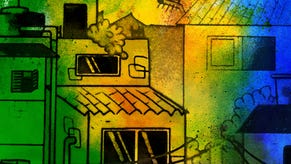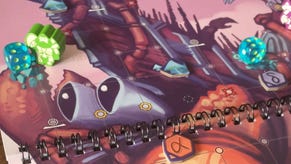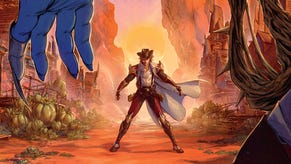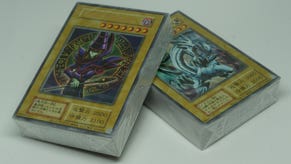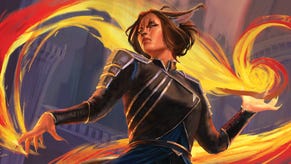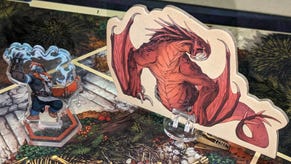Solo RPG The Wretched is a fantastic, if unintentional, pandemic anniversary game
All systems go kaput.
[Spoilers for The Wretched RPG below]
Like countless others across the world, I’ve now spent the last year and change living in relative isolation, my daily world a space no larger than a two-bedroom apartment. Separation from friends, family and community eventually became this weird, muted loneliness like a dull headache behind the eyes - never fully crippling but often enough to distract.
When I finally plucked Chris Bissette’s solo RPG The Wretched from my backlog, I didn’t expect it to elegantly translate the experience of spending more than 365 days hiding and staving off catastrophe. But by the end of the hour it took to play I felt some held breath deep inside me begin to loosen.
The Wretched is a journaling game for one person, chronicling the last days of a salvage ship that was menaced - and ultimately incapacited - on its return trip by an alien assailant. The player is the one remaining crew member, desperately trying to survive after venting the creature into the black vacuum of space. It still lurks just beyond the ship’s metal bulwark, eager to finish the job.
The Wretched is clearly a game that deals with hope in hopeless times.
Players use a deck of playing cards to prompt journal entries describing their days aboard the wreckage. The four suits address different problems they must face in order to survive, either by restarting the engines or repairing the distress beacon in hopes of signaling salvation. The Wretched’s engines and system both periodically fail or decay, and they might also run into signs of the alien’s initial assault - body parts, gashes in the walls and floor, anomalies affecting the electronics. Worst of all, they will likely find whatever remains of their crew and be forced to reckon with memories of what they lost.
Most cards end their prompt by telling the player to remove a block from a Jenga-like wooden tower that represents The Wretched’s structural integrity. The game begins with several already removed, and almost nothing can be accomplished without further pushing the vessel towards explosive failure. Should the tower fall, the survivor dies - their story ending abruptly.
The beauty of The Wretched, and its best design feature for my money, is asking the player to record their daily logs into a microphone. The voice is a less precise tool but one that cleaves closer to emotional truth, especially when the player-character is six days in and had to use the long-dead corpse of their best friend as bait to repair a vital piece of machinery.
Even beyond the constructed narrative, spending a prolonged time talking to and about yourself can be a vulnerable activity. My initial logs read like a buttoned-up engineer making rational and measurable notes of the situation but quickly devolved as the lack of human connection frayed my nerves. By day three I was telling stories of friends who had died in the attack, and by the ninth I was describing the alien like an irascible neighborhood pest who kept trying to knock over my bins, if only to feel connected to something.
Speaking also revealed my motivations to survive and how instinctual it felt, regardless of circumstance. Petty spite drove me to mock the creature scratching at the airlock as I drank rehydrated coffee, but a deep sense of obligation sent me searching for mementos of fallen crew members - like a teddy bear held in a death grip by our chief officer - to deliver back home.
The voice is a less precise tool but one that cleaves closer to emotional truth.
The Wretched is clearly a game that deals with hope in hopeless times, something I had become very familiar with in the past year. The daily routines undertaken while consciously avoiding the gnashing threat beyond a carefully maintained barrier sounds like an obvious metaphor (Bissette began designing the game well before lockdown), but roleplaying someone in a similar - if heightened - situation provided me an outlet for expressing all those little stressors and micro-frustrations and, in the end, ultimately confronting what little responsibility an individual can shoulder in the face of a world-shifting crisis.
There was never any chance my character would survive to be rescued. My log reached Day 12 before the tower fell and the game ended, but that felt like a colossal achievement. The final entry describes my choice to end things on my own terms, holding onto a scrap of agency as I sent The Wretched into total systems failure and denied the lurking alien a reward for its patience.

Bissette designed their game around a central lie - that survival was possible - but that inevitability didn’t cheapen the experience. Instead, it pivots the spotlight on the courage of facing the unrelenting march of endless days, the nobility in responsibility triage and the accomplishment in simple perseverance.
I’m left with a new appreciation for the year most of us spent waiting - and far too often confronting - the threat beyond our door. The Wretched characterized the hope that we might make it to 2021 and beyond not so much as a goal as a daily project, a routine as boring and frustrating as exercise and doing laundry. It felt so meaningless until it was all the control I had left.
Bissette and fellow designer Matt Sanders spun this experience out into a system called Wretched & Alone, powering all sorts of solo journaling games in a multitude of genres, but if anyone else feels like they’re in a place to begin unpacking the past year of trauma and fallout, I recommend starting with the original. It showcases a hard-to-find emotional intelligence and gentle respect for fools clutching to hope.




